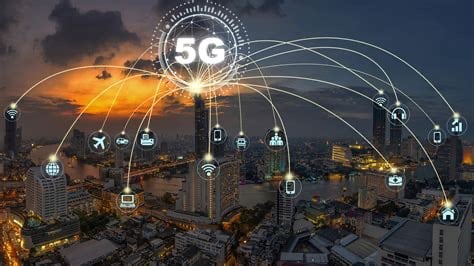Is 5g and the Internet-of-Things secure?
As the world eagerly embraces the fifth generation of wireless technology, commonly referred to as 5G, there's a pervasive misconception that it's inherently secure. However, beneath the surface lies a complex landscape of vulnerabilities and security challenges that warrant careful consideration. While 5G offers unprecedented speed, low latency, and enhanced connectivity, its security shortcomings cannot be overlooked.


As the world eagerly embraces the fifth generation of wireless technology, commonly referred to as 5G, there's a pervasive misconception that it's inherently secure. However, beneath the surface lies a complex landscape of vulnerabilities and security challenges that warrant careful consideration. While 5G offers unprecedented speed, low latency, and enhanced connectivity, its security shortcomings cannot be overlooked.
One of the primary reasons why 5G is not as secure as widely believed is the sheer complexity of its architecture. Unlike previous generations of wireless technology, which primarily relied on centralized infrastructure, 5G networks are characterized by a distributed architecture with a higher number of interconnected components, including base stations, small cells, and edge computing nodes. This expanded attack surface provides more opportunities for malicious actors to exploit vulnerabilities and launch attacks, posing significant risks to the integrity and security of network infrastructure.
Moreover, the adoption of new technologies such as network slicing and software-defined networking (SDN) introduces additional security challenges. Network slicing allows operators to partition a single physical network into multiple virtual networks, each tailored to specific use cases or applications. While this provides greater flexibility and efficiency, it also creates new points of vulnerability that could be targeted by attackers to compromise network integrity or gain unauthorized access to sensitive data.
Another critical concern regarding the security of 5G networks is the potential for supply chain attacks targeting hardware and software components used in network infrastructure. As 5G networks rely on a diverse ecosystem of vendors and suppliers, the integrity of the supply chain becomes a critical concern. Malicious actors could infiltrate the supply chain and compromise components at various stages of production, installation, or maintenance, leading to unauthorized access, data breaches, or service disruptions.
Furthermore, the proliferation of connected devices and the Internet of Things (IoT) in 5G networks introduces new vectors for cyber attacks and data breaches. As more devices become interconnected and communicate over 5G networks, the attack surface expands, creating opportunities for attackers to exploit vulnerabilities in IoT devices and compromise network security. From smart homes and autonomous vehicles to industrial control systems and critical infrastructure, the security of IoT devices and their interactions with 5G networks must be carefully managed to mitigate the risk of cyber attacks.
In addition to these technical vulnerabilities, concerns have also been raised about the potential for geopolitical threats and espionage in the context of 5G deployment. The global race to lead in 5G technology has sparked competition among nations and companies, raising concerns about the integrity and security of equipment supplied by certain vendors with ties to foreign governments. The prospect of backdoors or malicious code embedded in 5G infrastructure poses significant risks to national security and data privacy.
In conclusion, while 5G technology offers unprecedented capabilities and opportunities for innovation, it also presents significant security challenges that must be addressed. From the complexity of network architecture to vulnerabilities in supply chains and the proliferation of connected devices, the security risks associated with 5G are multifaceted and require careful consideration. As the world continues to adopt and deploy 5G technology, proactive measures and collaboration among stakeholders are essential to mitigate security risks and ensure the integrity and resilience of 5G networks.
